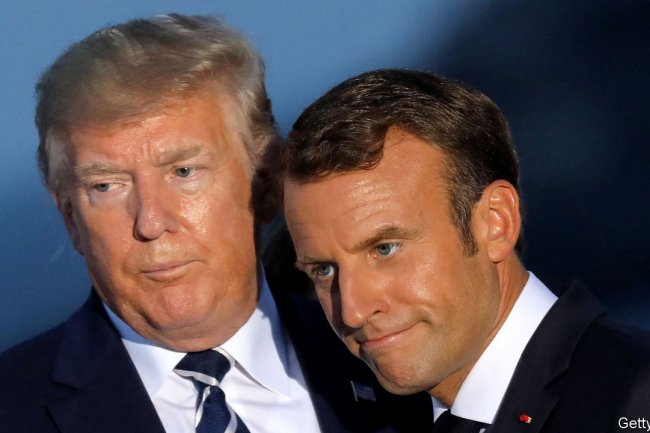Farage’s Claim of Bank-Account Closure Prompts U.K. Review
Treasury says it is checking for the right balance between customers’ free-expression rights and bank’s right to manage commercial risk Nigel Farage said that he and some family members had their bank accounts cut off because of his support for Brexit. Photo: mick tsikas/Shutterstock By Max Colchester and Margot Patrick July 3, 2023 2:03 pm ET LONDON—British banks have found themselves in the center of a debate over free speech, after the U.K. government expressed concern that they were black-listing customers who express controversial views. Nigel Farage, who led the campaign for the U.K. to quit the European Union, said last week that he and some family members had their bank accounts cut off because of his support for Br


Nigel Farage said that he and some family members had their bank accounts cut off because of his support for Brexit.
Photo: mick tsikas/Shutterstock
LONDON—British banks have found themselves in the center of a debate over free speech, after the U.K. government expressed concern that they were black-listing customers who express controversial views.
Nigel Farage, who led the campaign for the U.K. to quit the European Union, said last week that he and some family members had their bank accounts cut off because of his support for Brexit. He also blamed accusations, which he said were unfounded, that he in the past was paid substantial sums of money by a Russian broadcaster.
The claim sparked a backlash among other conservative commentators and politicians, some of whom also said they found it difficult to access banking services. Richard Tice, who set up the right-wing Reform Party in the U.K., said his political group had its bank account closed. The Free Speech Union, a group that defends gender-critical academics among others, said its account was briefly shut down by PayPal Holdings last year. A PayPal spokesperson didn’t immediately respond to a request for comment.
A U.K. government spokesman said Chancellor of the Exchequer Jeremy Hunt was concerned by the reports of banks closing accounts because of customers’ political views. The U.K. Treasury is reviewing “if the current framework strikes the right balance between the rights of a customer to express themselves freely and the right to the bank to manage commercial risk,” the spokesman said.
Banks close accounts for different reasons, sometimes because they change product offerings or because an account doesn’t make the bank money. Banks often freeze or shut accounts of those accused of or convicted of crimes. The costs involved in maintaining oversight over an account can also prompt banks to close them.
Anti-corruption and anti-money-laundering rules require banks to mark any politician or government official and their families as “politically exposed persons,” or PEPs, requiring additional, and often costly, scrutiny of their transactions.
Farage has a colorful history as an anti-establishment activist. The former commodities trader was an early, and longstanding, admirer of Donald Trump at a time when many in the British establishment ignored him. After Trump’s election in 2016, Farage was the first non-U.S. politician to meet the new president.
Farage said in a video statement that he had been with his bank, which he didn’t name, since the 1980s and had personal and business accounts. He said he was informed the accounts would all be closed, as a commercial decision. Farage said he attempted to open accounts at seven other banks and was declined. He said that there was nothing irregular or unusual about his banking activities.
The Times of London reported in 2019 that Farage was a customer of Coutts, the private bank that is part of NatWest Group.
A spokesperson for Coutts declined to comment.Mr. Farage didn’t respond to a request for comment.
After the U.K.’s divorce from the EU was finalized, Farage’s role in the British political debate waned. He is now a television commentator on GB News, a channel founded as a right-leaning alternative to the BBC.
On his show and in a video posted online, Farage said he believed that the account closure was because he campaigned for Brexit. “This is serious political persecution at the very highest level of our system,” he said.
Farage said the bank’s move to shut his account may have also had to do with what he said are false accusations of a financial relationship with a Russian broadcaster.
After Russia’s invasion of Ukraine in 2022, Labour Party politician Chris Bryant said in parliament that Farage had received more than $600,000 in fees from Russia Today in 2018. Farage made regular appearances on the Russian state-controlled TV station—and in the past said he admired Russian President Vladimir Putin —but denied he received that sum of money.
Farage has said he received less than £5,000, or around $6,350, a year in fees from RT. In filings made at the European Parliament he declared around €360,000 a year in income from media appearances in 2018, equivalent at the time to around $420,000. At the time Farage was also paid to present a radio show in the U.K. and make regular appearances on Fox News.
Farage has said the EU was wrong to provoke Russia over Ukraine. After tanks rolled into Ukraine in 2022, he said he misjudged Putin but that it “made no sense to poke the Russian bear with a stick.”
Write to Max Colchester at [email protected] and Margot Patrick at [email protected]
What's Your Reaction?

















